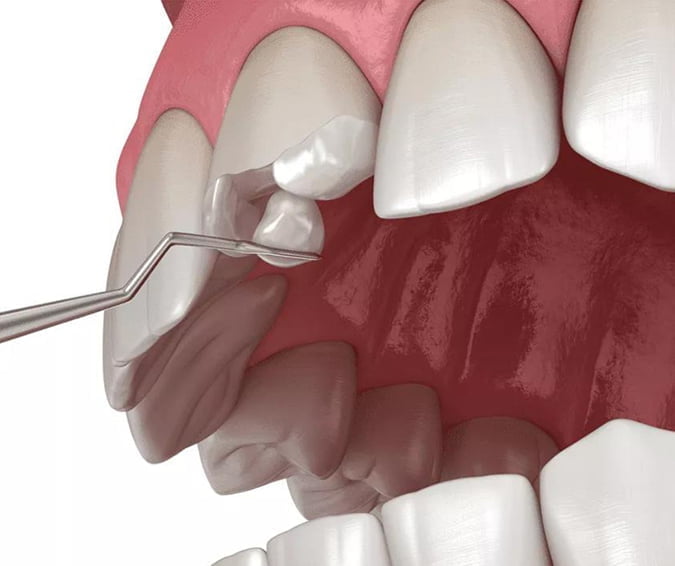
Table of contents

The most important thing to do is to stay calm! Although a dental emergency can be very upsetting, there is always a good solution available, and the first thing you need to do is to call your emergency dentist Dr. Shalman. He will try to help you as quickly as possible. He set aside appointments specifically for emergency treatments. If your dental emergency takes place out of office hours, check our dental office website as we offer an out-of-hours service and an emergency phone number to call (212) 658-1093.
When you contact our dental office, you will find we can offer you lots of useful information to help you immediately until you can get to see a doctor in person. We will arrange an appointment for you and can tell you exactly what to do to cope with the emergency in the meantime. However, it’s also critical to know when some dental emergencies require immediate care.
Sometimes, you must see a Dr. Shalman within the first 30 minutes of an accident, for example, if you knock out a tooth.
If you knock out a tooth, you only have a short while to try and save it. You must take the appropriate action immediately afterward to increase the chances of reinserting and preserving the tooth, such as:
Ideally, try to reinsert the tooth into the empty socket, but you must make sure it faces the right way around. Once reinserted, use a clean finger or bite down gently on a piece of gauze or clean tissue and go and see your dentist immediately. However, not everybody feels able to reinsert a tooth. In this case, put the tooth in a small cup of milk or store it inside your cheek if you can be sure you won’t swallow it. It’s best not to store it in water because this can dry out the tooth. You can buy special tooth preservation solutions for emergencies like this from your drugstore.
If you are an accident-prone family, it could be worth keeping some handy! Go to your dentist immediately, taking the tooth with you, and they will do their best to reinsert it.
Time is critical when dealing with a knocked-out tooth. The longer it remains outside the socket, the less chance it can be saved.
Sometimes a blow to the mouth won’t knock out a tooth entirely, but you can feel it is loose in the jaw. This is another emergency, and you must see your dentist immediately.
You could try gently pushing the tooth back to its original position with a clean finger, but don’t use too much pressure. When you see your dentist, they can assess the injury to the tooth, and if it is salvageable, they will most likely splint it to the adjacent teeth to help keep it stable while it heals in the jaw.
A fractured or cracked tooth can be a serious problem because the inner part of the tooth may be damaged. Sometimes a fracture is so severe that the tooth cannot be saved. If you fracture a tooth, it is a dental emergency, and you should see a dentist immediately.
When you see your dentist, they can take a dental x-ray to assess the damage to the tooth and to see if it can be saved. Sometimes a severe fracture can damage the tooth pulp inside the tooth. In this case, you may need root canal therapy to preserve the tooth and to prevent infection. Less severe damage can sometimes be corrected with a porcelain crown that covers the entire tooth.
If you chip a tooth and it doesn’t feel painful, you must still see your dentist quickly, but this problem isn’t necessarily an emergency. However, you do need to make a dental appointment and, in the meantime, try to avoid using the tooth to bite or chew food, which could worsen the damage. Often, a chipped tooth can be easily mended with composite tooth filling material, which is quick and inexpensive.
A severe toothache can be a dental emergency, which is why you should never ignore any signs of dental discomfort. A toothache is a sign that something is wrong with the tooth and that it will need professional dental care.
A severe toothache can indicate that the inner part of the tooth called the dental pulp has become infected and inflamed. The dental pulp can become infected if a tooth has a small crack or chip that hasn’t been mended, or if you have recently lost a filling or have untreated tooth decay. All these issues allow disease-causing bacteria to get into the tooth, causing that infection and pain.
Usually, a severe tooth infection can be treated with root canal therapy. This excellent procedure will save the tooth so your dentist can preserve and protect it afterward by placing a dental crown.
If you ignore toothache, then it will not go away on its own. Instead, the infection will worsen and can develop into a severe dental abscess. A severe abscess can become life-threatening. If you notice you have facial swelling or that your gum around the tooth is swollen or that you feel unwell or feverish, see your dentist immediately or go to your nearest hospital emergency room.
Any cuts or lacerations affecting the inside of your mouth can bleed considerably. To stop the bleeding:
If the bleeding doesn’t stop or the wound is large, go to your hospital emergency room as you will need to see an oral surgeon.
For more information about dental emergencies at Shalman Dentistry, visit our Manhattan dental center or call us: (212) 658-1093
Shalman Dentistry
44 W 10th St #1A
New York, NY 10011
(10th St, between 5th & 6th Avenue)
☎ (212) 658-1093
Get Directions (Map)